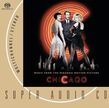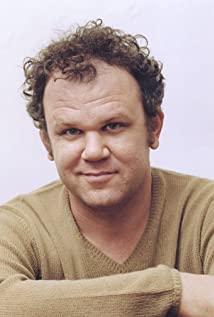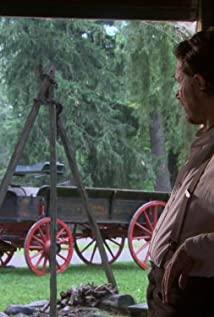If Calvino decides to write about Sin City...
"Chicago" won the 2002 Oscar for Best Picture, based on the Broadway musical of the same name. In the theatrical version, the announcer introduced the work as follows:
Ladies and gentlemen, today you're about to see a story of greed, corruption, murder, adultery, chaos and treachery. s story.)
Then the lights dimmed and the show officially started.
The film version omits this "ceremonial sense" process, with the black host approaching the microphone and shouting "five, six, seven, eight!" rhythmically, the cheerful and frivolous jazz exploded, "immersion" Being officially established in this way, the audience seems to be suddenly thrown into the Chicago of the early 1920s.
The plot of the film is actually very simple. A dancer kills her cheating husband and sister, and a wife kills her boyfriend who committed adultery with her in order to help her become famous. Both of them are imprisoned, but because of their beauty, lawyer The operation and media hype were all acquitted and even eventually became a big star. As Roxie, one of the heroines, sang:
Who said murder isn't an art? (Who says murder isn't art?)
Yes, the theme of this film is very obvious. By telling a dark story of a past time and space, it expresses the male gaze, the sexual symbolism of women in society, the hotness of the media and the gimmicks, the corruption of the judicial system, the entertainment of the times. To death, etc. clichéd topics. So, what's so special about this movie?
It's unique, I think, in the way it expresses the subject. All the characters in the film did not show resistance to this kind of society, but completely complied with it, "digging its mud and raising its waves, feeding it and drinking it", and obtained benefits and fame from it. The film satirizes and criticizes all of this by showing the bizarre scenes of this society. And musicals just happened to be a wonderful way to express this theme. I don't really like this type of film, their exaggeration often makes me feel detached, but in this film, it is the exaggeration that keeps the film from becoming a slang third-rate story, but always remains a mockery Attitude.
In the villain film review, Bomi once talked about two ways in which the song and dance scenes exist in musical films. The first is that the characters in the film know themselves, that is, rationalize the singing and dancing scenes and set the necessary background. For example, in "Karaoke Hall", the protagonist is the resident singer of the karaoke hall, so the appearance of her arias is not abrupt; the second is that the characters in the film do not know themselves. There is no real rationality in the world.
So how should the song and dance part of "Chicago" be summarized?
I think that in the first half of the film, the characters in the singing and dancing parts are not aware of themselves, they are more like from the subjective perspective of the protagonist Roxie, and her extreme desire to become famous and eager to be on the stage makes her Many fragments of singing and dancing have her inner psychological externalization part, just like a layer of filter. At the beginning of the film, at the climax of Velma's singing, in the eyes of Roxie, who looked up from the audience, the person on the stage suddenly became himself, which can be reflected most vividly.
Since then, whether it is the heroine's fantasy of becoming famous, or the self-introduction of the warden, or the self-defense of the female prisoners of the same level, they are all carried out in the way of singing and dancing. The scenes are all romanticized.
But in the middle of the film, the death of the foreign female prisoner becomes a turning point. It is ironic that almost all the female prisoners in this women's prison can be said to have died legally, but they all escaped because of the long sleeves of the warden; and the only one who did not understand English and was forcibly made a scapegoat by the police, she became a scapegoat. The first person to be executed in this prison.
The film uses a parallel montage technique to express this scene: on one side is the tactile scene where the snow is flying, the woman is wearing a prison uniform and slowly walks to the gallows; , is preparing to perform a magic trick called "Disappearance". In this way, the rope on the execution ground suddenly fell, and the woman on the stage suddenly disappeared. The snow-covered outer city could hardly conceal the darkness of sin; and an incarnation of purity vanished in such a city.
Since then, the singing and dancing part of the film is no longer the inner theater of the characters, but more like the epitome of the exaggerated deformation of the city. It is unreal, but therefore more directly shows the reality. For example, at a press conference in a real-life drama, Roxie answered the lawyer's request in a strict manner and gradually influenced the reporters. In a non-realistic drama, it became a puppet show chorus in which the lawyer controlled the heroine and many reporters; the court trial in the real-life drama During the process, lawyers dominated the whole process, and in non-realistic scenes, it completely turned into a carnival-like carnival.
I really like Calvino's Invisible Cities, not only because of the many allegorical short stories that are so timeless, but also because of the subtle oppositions of the dichotomies in those stories: life and death, past and future... I sometimes Think, if Calvino decided to describe the city, how would he write it?
Stand here, walk west for three days and three nights, and you'll come to Chicago. It is full of greed, corruption, murder, adultery, chaos and betrayal. Ordinary people live miserably like rats in a dark and cold society. But if you try to understand and incorporate the ugly rules that govern the city, you'll see a city that's brightly lit, partying all night, and having fun. It was another Chicago, a city built in people's minds. Many people ask themselves, which one is the real Chicago? Is it the city of sin in the withered reality, or the city of carnival in the absurd and exaggerated mind, which one is more real?
The end.
View more about Chicago reviews











